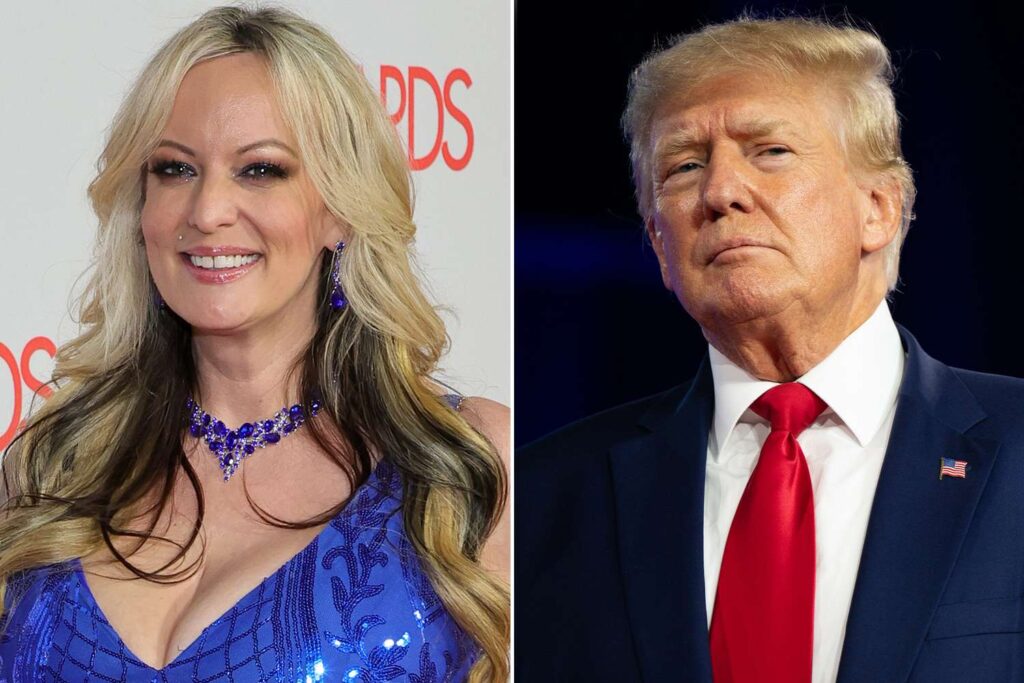At his criminal trial, Stormy Daniels, the porn star, vividly recounted her 2006 encounter with Donald Trump, painting it in stark and unflattering terms.
Daniels testified for several hours, describing how she tried to mentally dissociate during the act and feared its potential public disclosure.
Daniels, aged 45, detailed the events and her subsequent agreement to remain silent, a pact made public in 2018 ahead of Trump’s successful 2016 presidential campaign.
This exposure plunged her life into chaos, leading to ostracism and harassment at her home.
In court, prosecutor Susan Hoffinger questioned Daniels about a derogatory social media post by Trump, in which he referred to someone as “horseface” and “sleazebag.” Daniels identified herself as the target of these insults.
The porn star expressed her disdain for Trump and her hope for his imprisonment if convicted. Trump’s legal team requested a mistrial, claiming Daniels’ explicit details, including Trump’s lack of contraception, unfairly biased the jury.
However, Justice Juan Merchan dismissed this request.
Daniels also claimed that Trump, who has re-entered the presidential race and denies the allegations, offered her a role on “The Apprentice” post-encounter.
Despite this, she affirmed her main income post-scandal was from publicizing her story.
Highlighting her modest upbringing as the daughter of a low-income single mother, Daniels recounted Trump’s suggestive remark that their interaction was her ticket out of poverty.
After the incident, where she described losing consciousness without substance influence and waking disrobed, she left abruptly.
Daniels testified Trump made unwanted advances during a celebrity golf event in Lake Tahoe, Nevada.
Over the years, although they saw each other publicly, their communication ceased after she wasn’t cast on the show.
Her 2011 threat in a parking lot initially deterred her, but the mounting accusations of Trump’s sexual misconduct during the 2016 campaign motivated her to go public.
Jurors were shown documents regarding a $130,000 agreement she reconsidered but ultimately maintained, fearing Trump might not pay if he won the election.
Prosecutors argue Trump’s actions, involving falsified business records to mask the payment, were part of an illegal scheme to silence damaging narratives during the election.
This case, less sensational than other charges Trump faces, still stands as the only one guaranteed to proceed before the upcoming election.
